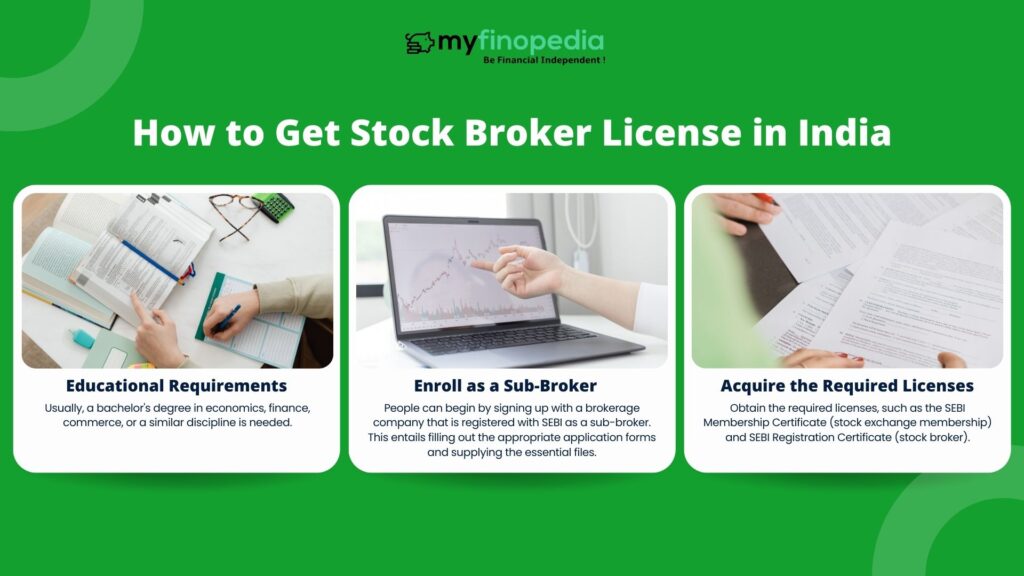In order to obtain a licence as a stock broker in India, one must comply with the regulatory standards established by the Securities and Exchange Board of India (SEBI). Here’s a thorough guide:
1. Qualification Standards:
Educational Requirements: Usually, a bachelor’s degree in economics, finance, commerce, or a similar discipline is needed.
Experience: It is beneficial to have relevant work experience in the financial industry.
Exam clearance: It is required to pass exams certified by SEBI, such the NISM-Series-I: Currency Derivatives Certification Examination.
2. Enroll as a Sub-Broker: People can begin by signing up with a brokerage company that is registered with SEBI as a sub-broker. This entails filling out the appropriate application forms and supplying the essential files.
Under the primary broker’s direction, sub-brokers support in managing customer accounts and carrying out trades.
3. Get Knowledge and Experience: Gaining real-world experience in investing and stock trading is crucial. It is essential to comprehend trading tactics, risk management, and market dynamics. It is advised to pursue ongoing education through conferences, workshops, and certification programmes in order to stay current on rules and developments in the sector.
4. Acquire the Required Licenses: Obtain the required licenses, such as the SEBI Membership Certificate (stock exchange membership) and SEBI Registration Certificate (stock broker).
Meet all regulatory obligations, including as capital adequacy standards, compliance requirements, and SEBI-mandated infrastructure setup.
5. Compliance and Documentation: Consistently make sure that all SEBI rules and standards are followed. Ensure that all transaction, client, and financial statement records are accurate.
As mandated by SEBI and other regulatory agencies, provide reports and disclosures on a regular basis.
6. Ongoing Professional Development: Keep up with modifications to laws, market patterns, and technology developments in the financial industry. Engage in training and professional development initiatives to advance your knowledge and abilities.
In conclusion, commitment, knowledge, and compliance with legal requirements are necessary to obtain a stock broker licence in India. A successful career in stock brokerage can be achieved by meeting educational requirements, earning experience, obtaining the required licenses, and keeping up with industry advances.






